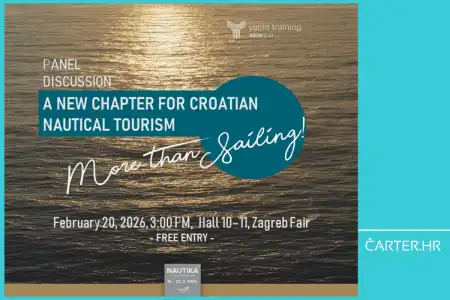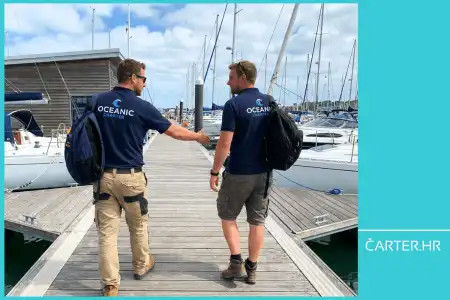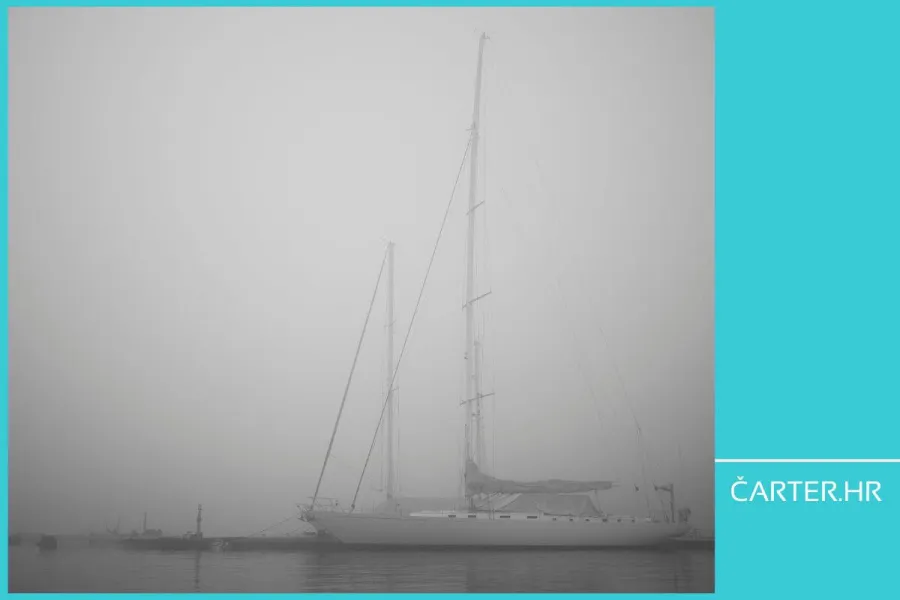
Today, having great boats is not enough. Guests choose what they can find online, what they recognize, and what they trust. If you want the right guests to find and choose you, online visibility is no longer optional – it’s essential. Below, we share practical tips to help you get noticed in the right place, at the right time.
In recent years, everyone has felt it – the market isn’t what it used to be. Inquiries are coming in, but more of them go unanswered. Guests are more demanding, and competition has never been fiercer.
And this isn’t just a passing phase.
We’re talking about real changes in guest behavior, an explosion in advertising and platforms, and the unavoidable digitalization of business.
If you run a charter company in Croatia, you already know you need a strong fleet and well-maintained boats. But a good fleet alone is no longer enough. Online visibility has become essential.
Here are some practical suggestions that can help the right guests find you at the right time and place.
How to get (more) noticed online
You're probably already online – but how? In what way and how effectively?
Most charter companies have a website, maybe a Facebook or Instagram profile, but that’s no longer enough for guests to truly notice you.
Google doesn’t work the way it used to. Ads dominate the top results. It feels like everyone is advertising. Organic reach hardly works anymore in such a competitive niche. If you’re not among the top three results for searches like "sailing in Croatia" or "catamaran charter Split," there’s a good chance your potential guests won’t even see you.
Still, you don’t have to pour thousands of euros into ads – but you must know where your potential guests are and what kind of content grabs their attention.
Simple photos of your boats won’t cut it anymore. People are looking for stories, route ideas, emotion – even a face behind the company.
Question for you: Who is looking for you right now, and what do you show them when they find you?
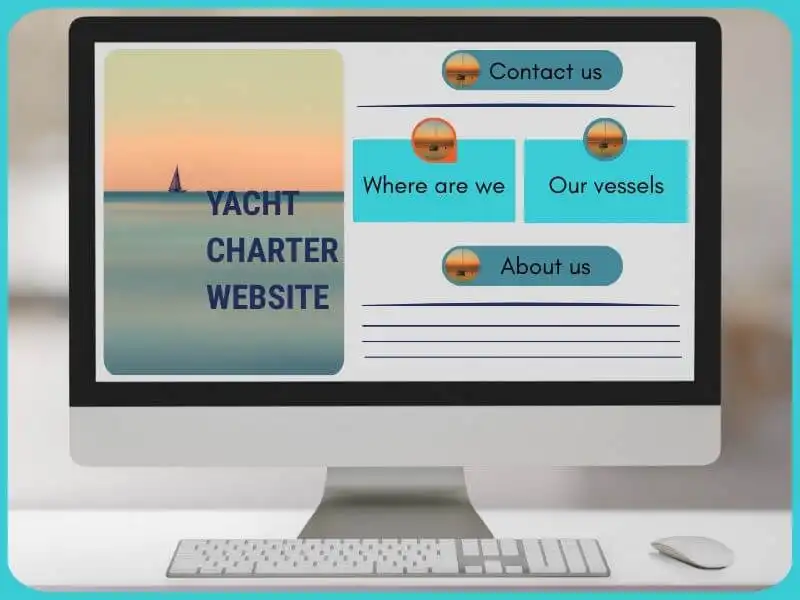
What your website says (or doesn’t say) about you
Your website isn’t just a digital brochure. It’s the mirror of your business, working for you 24/7.
If your website loads slowly, if guests can’t easily find prices, rental conditions, or your contact information, you’re losing potential bookings without even realizing it.
Beyond technical details, your story matters too.
Does your site have a clear structure? Can someone from a mobile phone understand who you are, what you offer, and why they should contact you within 30 seconds? Is there a clear call to action?
Another important question: is your website up to date? Or is a boat you sold last year still "waiting for guests" online? Small details like this – even if they seem minor to you – seriously damage trust.
You need to clearly and simply present what you do best.
Should you even be on social media?
If you’re not on any social media today, it’s almost like you don’t exist. Especially for younger and middle-aged guests who plan trips through Instagram, TikTok, or Facebook.
But (and this matters) being present without purpose brings no results. It’s better to have one good Instagram profile with regular posts showing your guests’ real experiences than to have five channels that no one updates.
Your posts don’t have to be overproduced. A short sunset video, a skipper describing their favorite route, a guest explaining why they loved your charter – these are the things people find authentic and valuable.
Question for you: when was the last time you posted something that wasn’t just a photo of your boat at anchor?
Is advertising a waste of money or a smart move?
Advertising alone won’t solve everything, but it’s powerful when you know exactly who you’re talking to and what you want to achieve. There’s no point throwing your budget around without a clear plan.
Want more direct inquiries? Then your ads must lead to a well-optimized site with clear contact forms and a logical information flow.
Targeting German guests? Don’t advertise in English – use German ads with local phrases. If you’re targeting couples, offer ideal romantic routes; if you’re focusing on families, highlight safety and convenience.
Good advertising is a personal invitation – sent to the right people, in the right tone, with a clear message. Not just another generic ad that everyone skips.
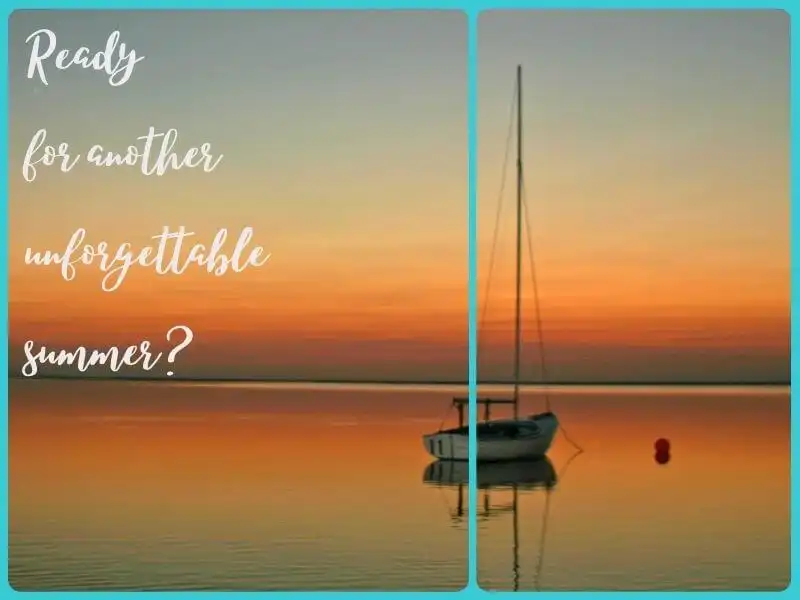
Why email marketing (still) matters
Most charter companies don’t use newsletters at all – and that’s a huge missed opportunity.
It’s one of the most affordable and effective ways to maintain relationships with past guests and encourage repeat bookings. If someone had a great experience with you once, why not invite them back next season?
You don’t need a fancy CRM system – just a simple mailing list and a few good messages throughout the year. For example: "Ready for another unforgettable summer?", "New routes and top spots for the upcoming season," or "Book before April ends and receive a special welcome gift."
Your messages must feel human, helpful, and personalized.
If you know someone traveled with their family, don’t offer them a party yacht – offer them a catamaran perfect (and safe) for families. Guests will notice – and remember – the effort you make.
SEO isn’t just about Google
When we say "be visible," we don’t just mean on Google. Guests today also search for boats and inspiration on Instagram, TikTok, and YouTube.
That’s why every video title, post description, and hashtag matters.
You’re not just a yacht charter company – you offer "catamaran sailing for families," "honeymoon sailing Croatia," or "skippered yacht holidays in Dalmatia."
Social media algorithms work much like Google’s – connecting the right audience to the right content. If you adapt your content to match what people actually search for, you’ll naturally see better reach – and more bookings.
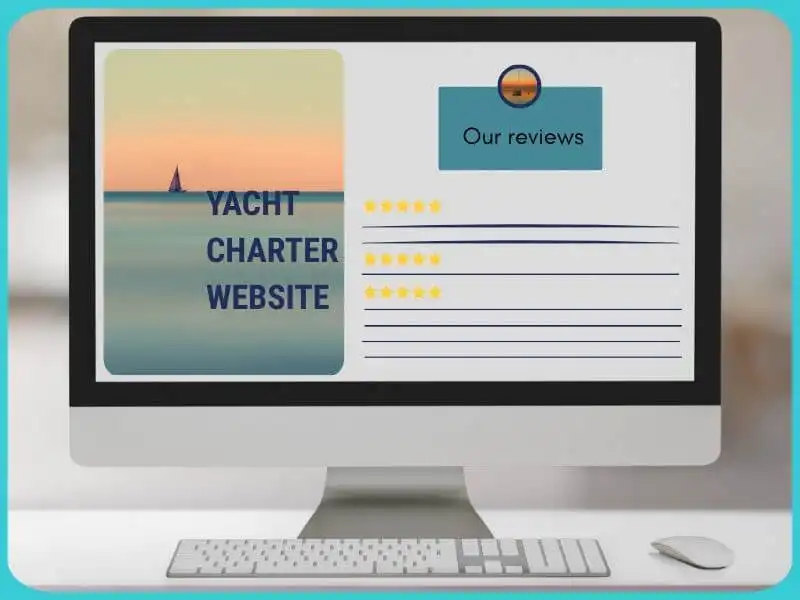
Reviews – the ultimate trust currency
You can have a stunning website, great photos, and competitive prices – but if you don’t have public reviews, or worse, you ignore them, you’re losing trust.
Most potential guests today first check Google reviews, Facebook comments, Instagram posts, and other platforms before deciding whether to contact you.
Is your business even present on these platforms? When was the last time you responded to a review – whether positive or negative? Guests want to see that you care. A simple thank you, an apology, or an explanation can make a huge difference. Don’t miss out on it.
An active profile with honest reviews and human replies can be worth more than any ad campaign.

How platforms like čarter.hr can really help
More and more platforms, aggregators, and portals offer "online visibility" – but what čarter.hr does is different.
We don’t sell ad space. We help you get seen – where it really counts.
Through tailored content, SEO strategies built specifically for the nautical and charter industries, and by building trust between you and the market – we work on things that cannot be solved with just a quick ad.
We understand how guests think, what agents look for, what intermediaries find frustrating, and what local businesses value most. That’s why we offer real, actionable advice – customized for you.
We can help you update your website, better structure your offers, write texts that sound human, and show what makes you special.
Online visibility doesn’t happen by chance. It’s not about luck – it’s about choosing to make a few smart changes that can lead to real results.
If you need a partner in that – charter.hr is here. We offer real tools and real support. All you have to do is reach out.
Because your business deserves to be seen.
Categories of trends
- News
- Sale
- Marketing
- SEO
- Web design
- Social media
- Technology
- Regulations
- Management
- Education
- Finances
- User experience
Newsletter
Sign up for the newsletter and receive the latest trends and tips straight to your inbox


